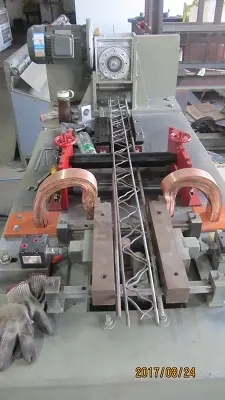
The Evolution and Importance of Thread Making Machines
In the world of manufacturing and textile production, thread making machines have become indispensable tools in the production of both natural and synthetic fibers. The evolution of these machines reflects advancements in technology, efficiency, and the ever-changing demands of the textile industry.
The process of thread making has been around for centuries, initially done by hand with rudimentary tools. However, as the textile industry expanded during the Industrial Revolution, so did the need for faster and more efficient thread production. This led to the invention of the first thread making machines, which mechanized the process and significantly increased productivity.
Modern thread making machines use advanced technology to produce a wide variety of threads, from cotton and linen to polyester and nylon. These machines incorporate multiple functions, including spinning, twisting, and winding, all designed to create high-quality thread with uniform strength and texture. With the integration of computer technology, manufacturers can now produce threads that meet precise specifications, ensuring consistency across large production runs.
One of the most significant innovations in thread making machines is the automation of the production process. Automated machines reduce the need for manual labor, allowing for faster production rates and lower labor costs. With the ability to monitor and adjust parameters in real-time, these machines can minimize waste and improve overall efficiency. This is particularly important in an industry where profit margins can be tight and competition is fierce.

The environmental impact of manufacturing processes has also become a significant concern. Many modern thread making machines are designed to be more energy-efficient and to utilize sustainable materials. Manufacturers are increasingly focusing on eco-friendly practices, such as recycling and reducing water consumption, to meet the demands of a more environmentally conscious consumer base.
The versatility of thread making machines allows for the production of specialty threads as well. These can include fire-resistant, UV-resistant, and high-strength threads, which are vital for specific industries such as construction and automotive. Such advancements have opened new markets and opportunities for manufacturers, highlighting the importance of innovation in maintaining competitiveness.
Moreover, the global nature of the textile industry means that thread manufacturers often have to cater to diverse markets with varying demands. This requires flexibility and adaptability in production processes, capabilities that modern thread making machines provide crucially.
In conclusion, thread making machines are a vital component of the textile industry, evolving continuously to meet the demands of modern production. Their role in automating processes, improving efficiency, and reducing environmental impact cannot be overstated. As technology continues to advance, we can expect further improvements that will not only enhance the quality and variety of threads produced but also pave the way for a more sustainable future in textile manufacturing. The thread making machine is not just a tool; it is a testament to the industry's commitment to innovation and excellence.